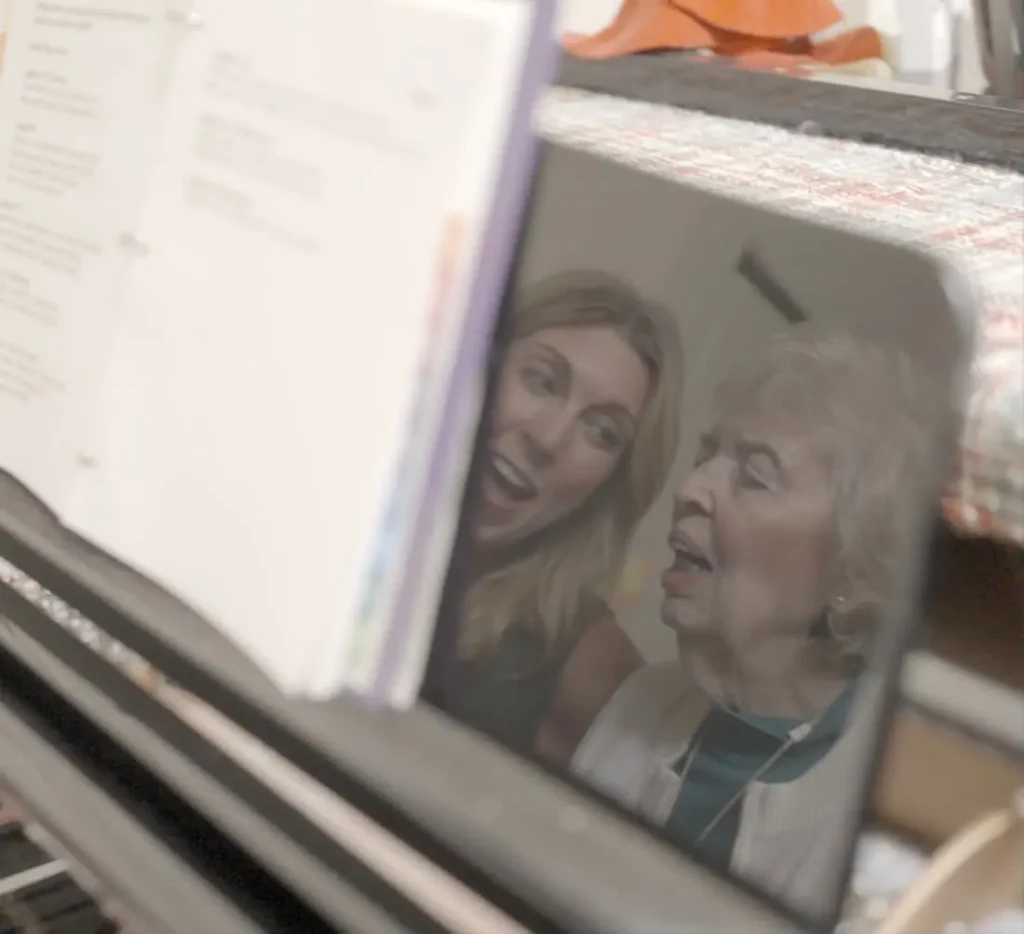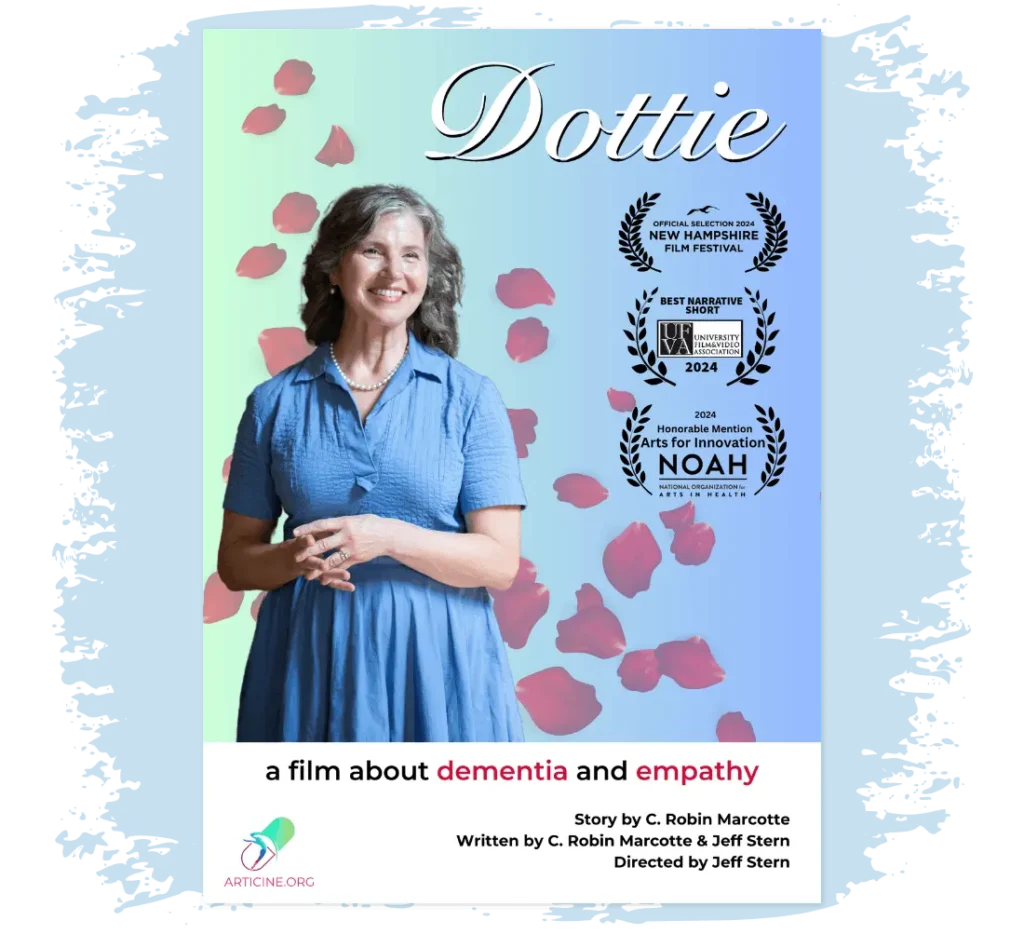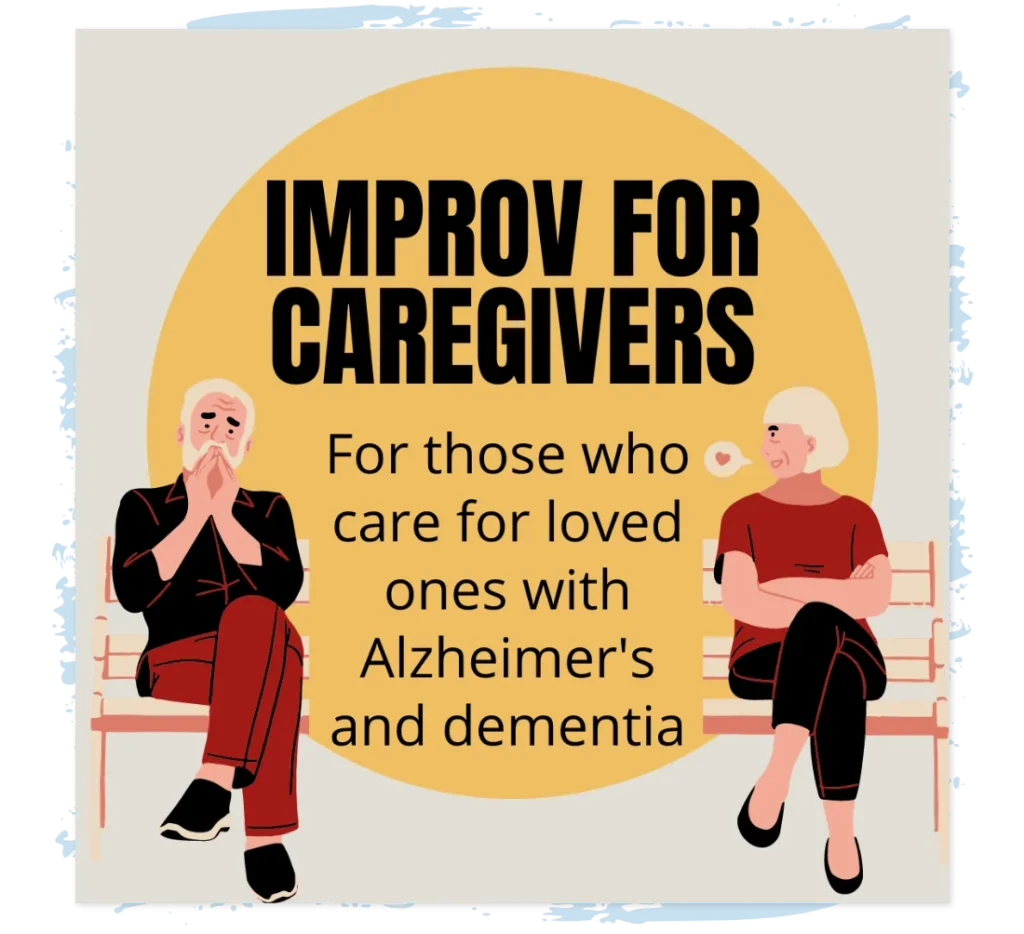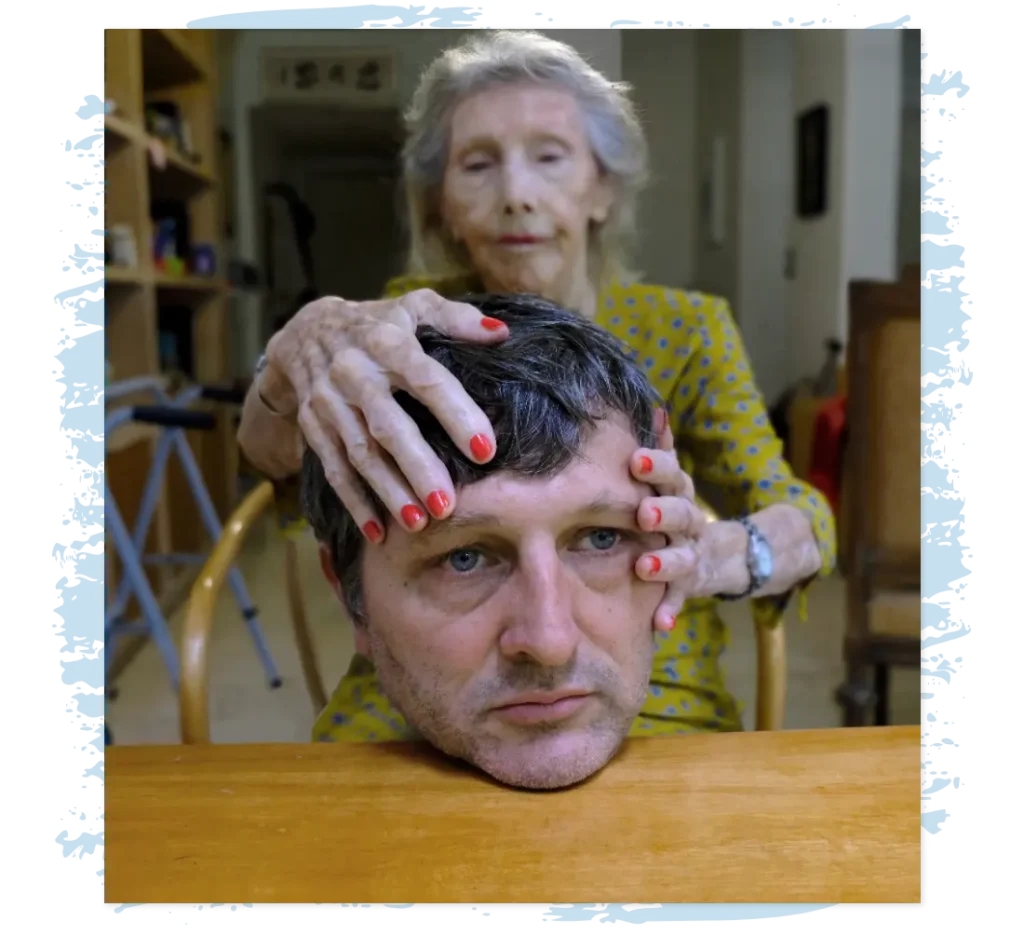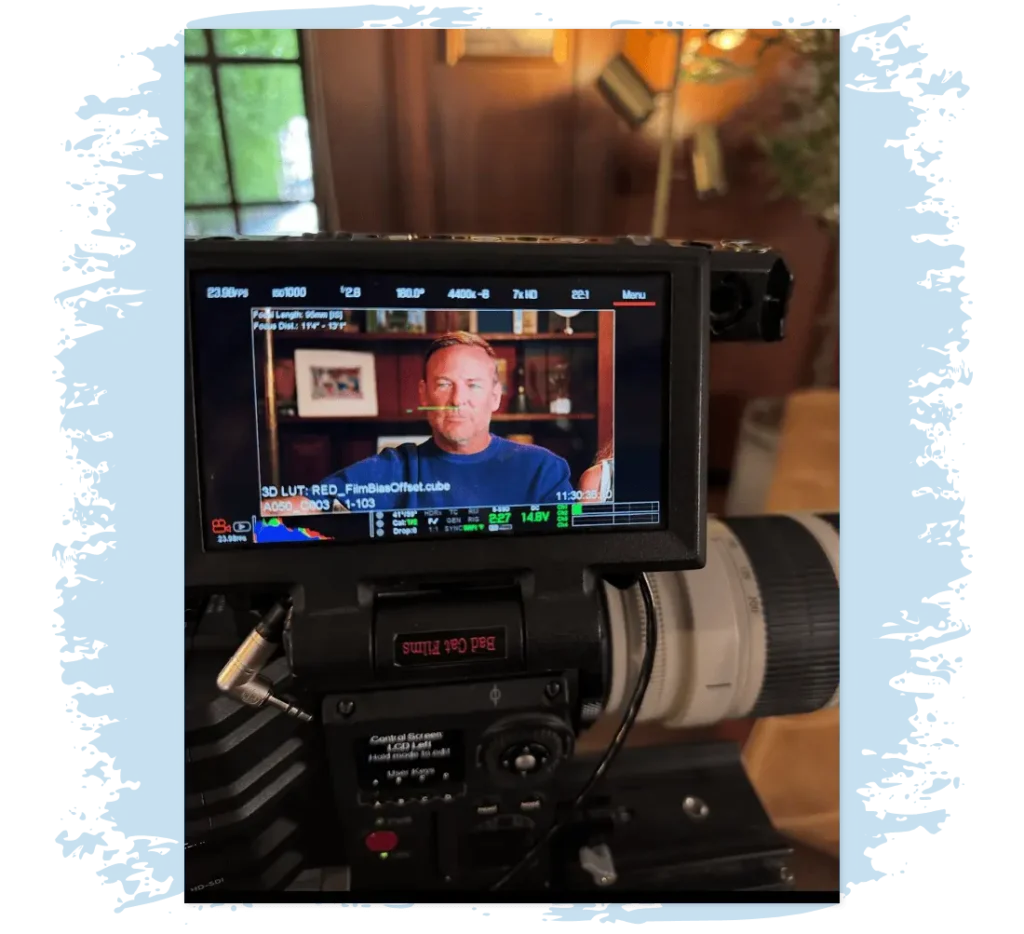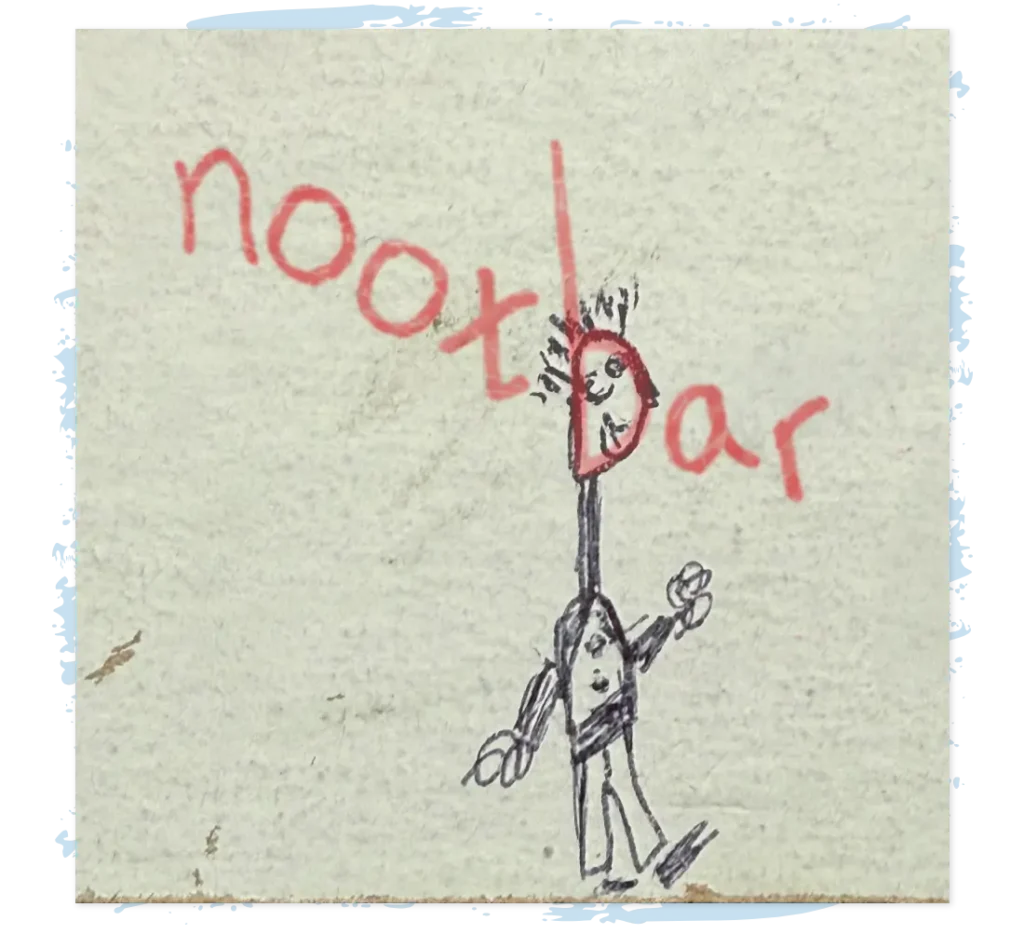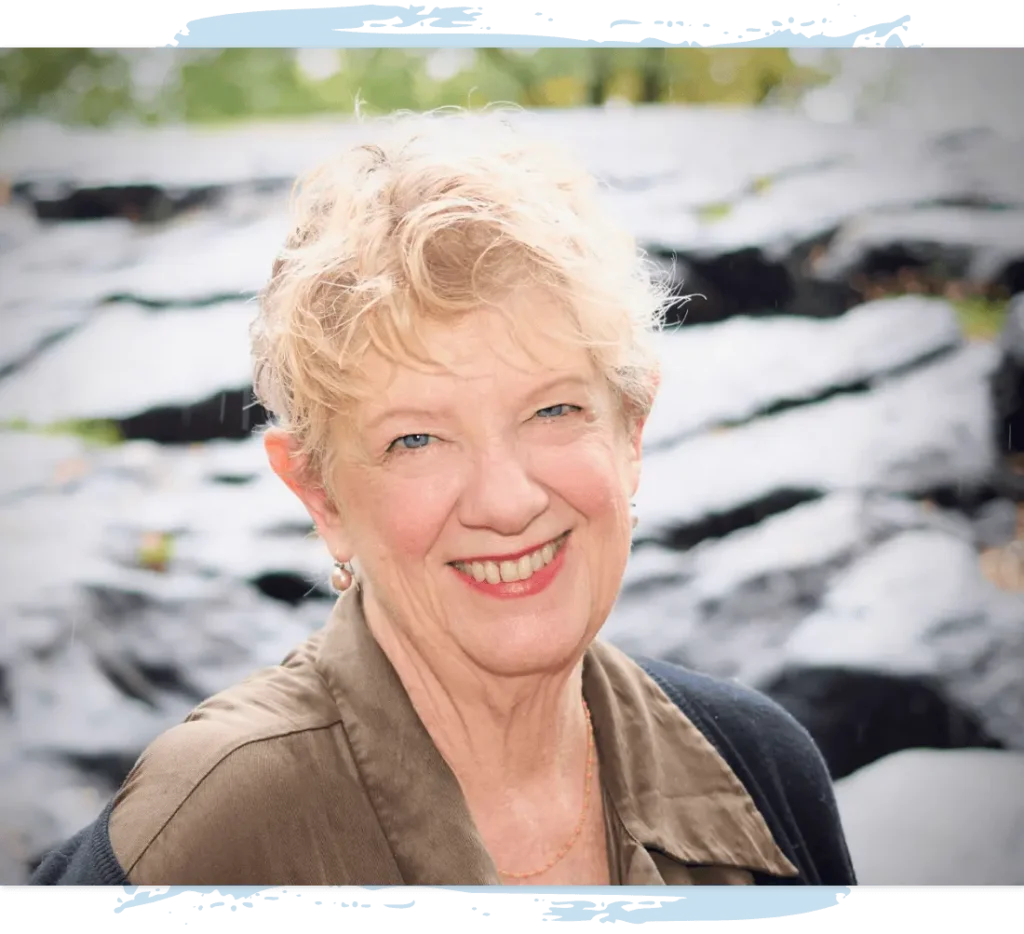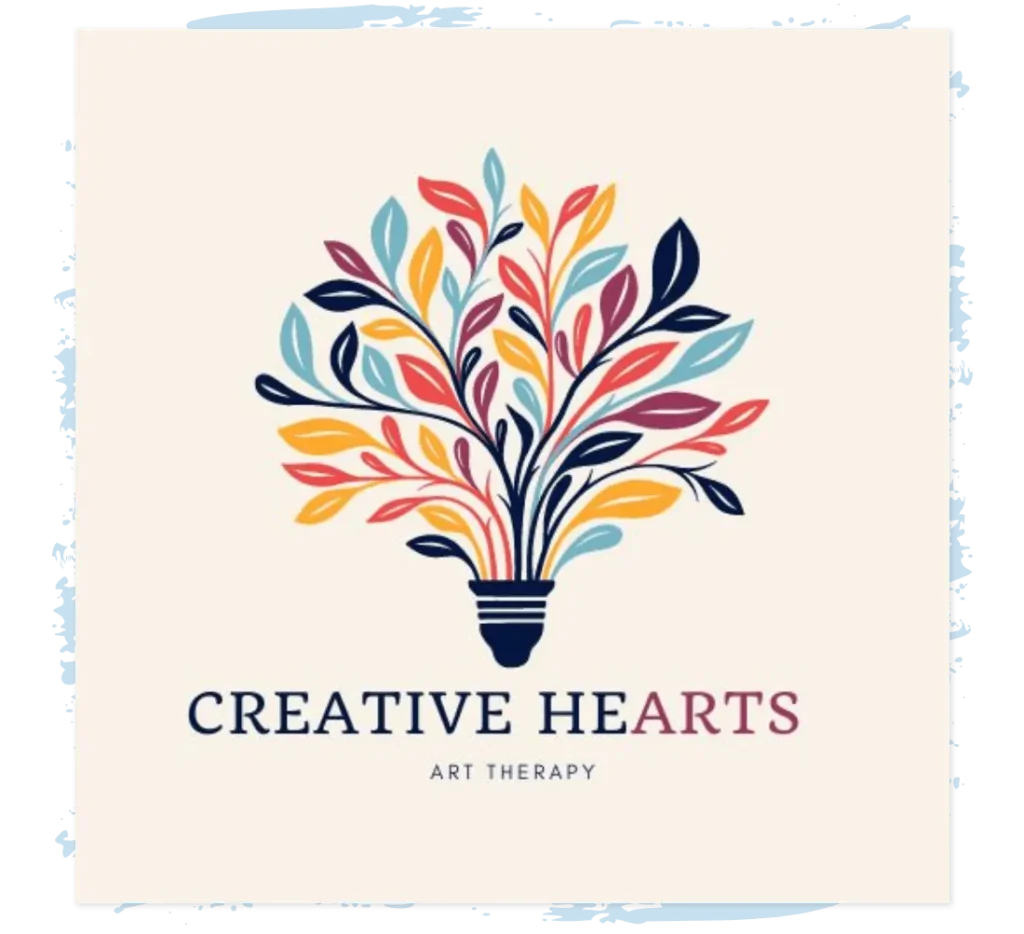What is SOUND MEMORIES?
A growing movement of “memory choirs” is changing the conversation around dementia care in America. SOUND MEMORIES, from Daisy May Films, is a documentary film that shares the stories of several individuals at the center of the movement who are harnessing the power of song and socialization to slow the progression of memory loss, including Grant West, a member of the Amazing Grace dementia-friendly gospel chorus, who is only in the early stages of dementia and will be capable of talking about any changes he might experience; and Vladimir Garrido-Biagetti, director of the Spanish-speaking Centro chorus, who leads an innovative chorus in a community of creators.
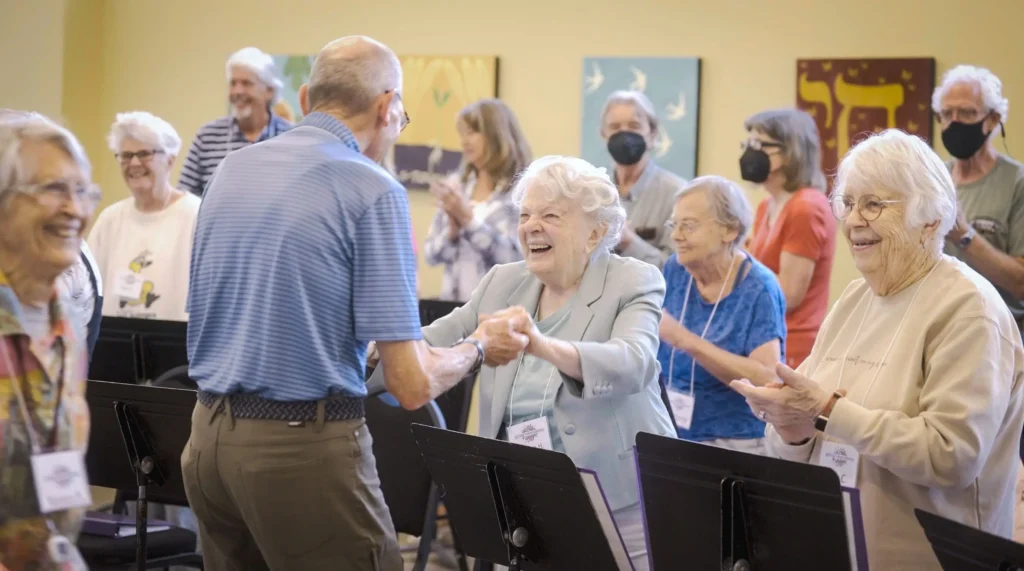
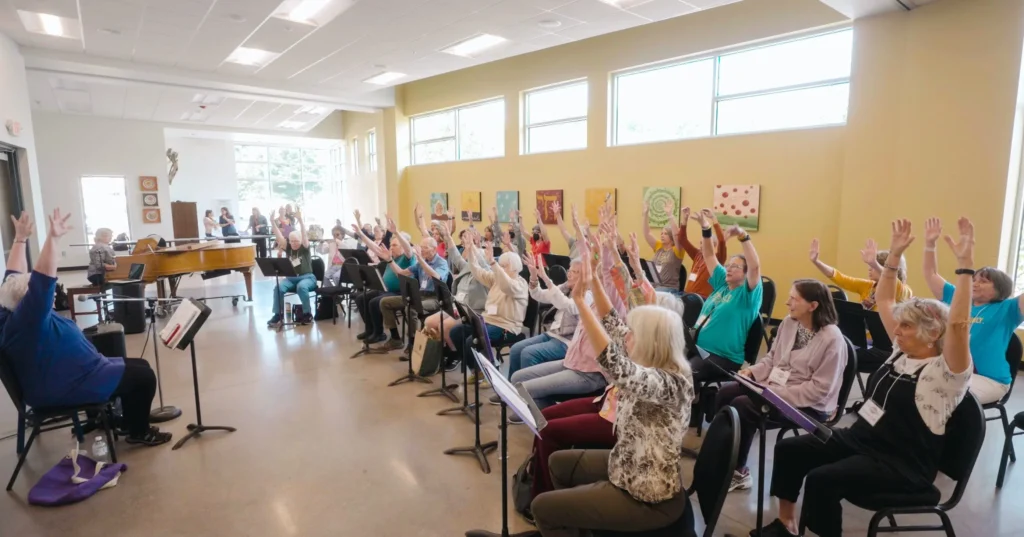
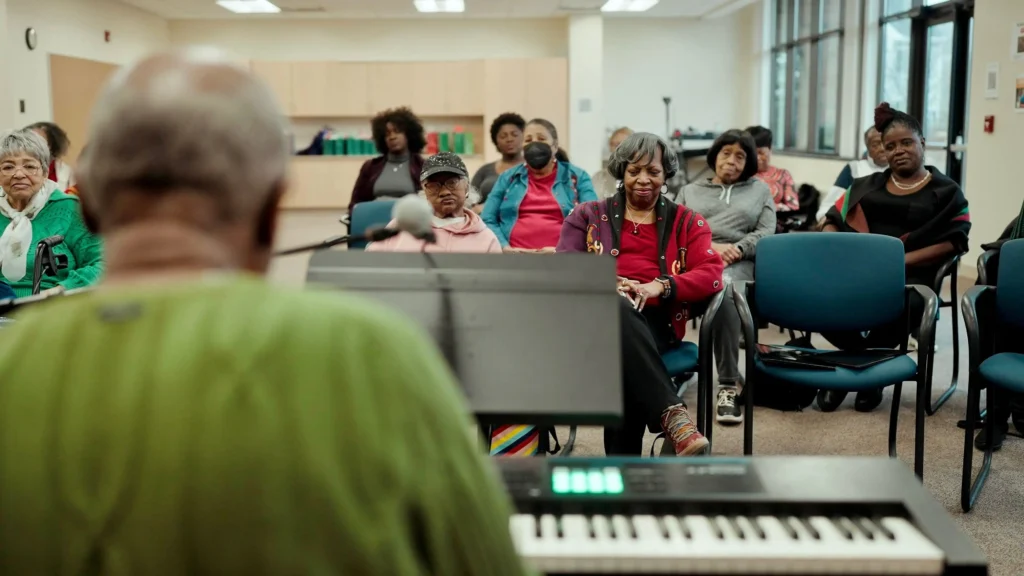
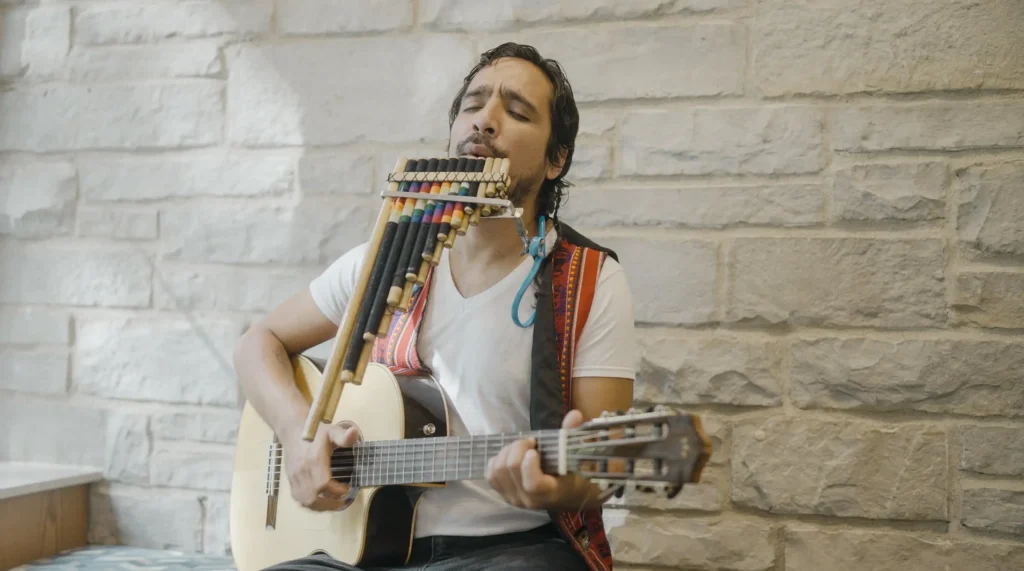
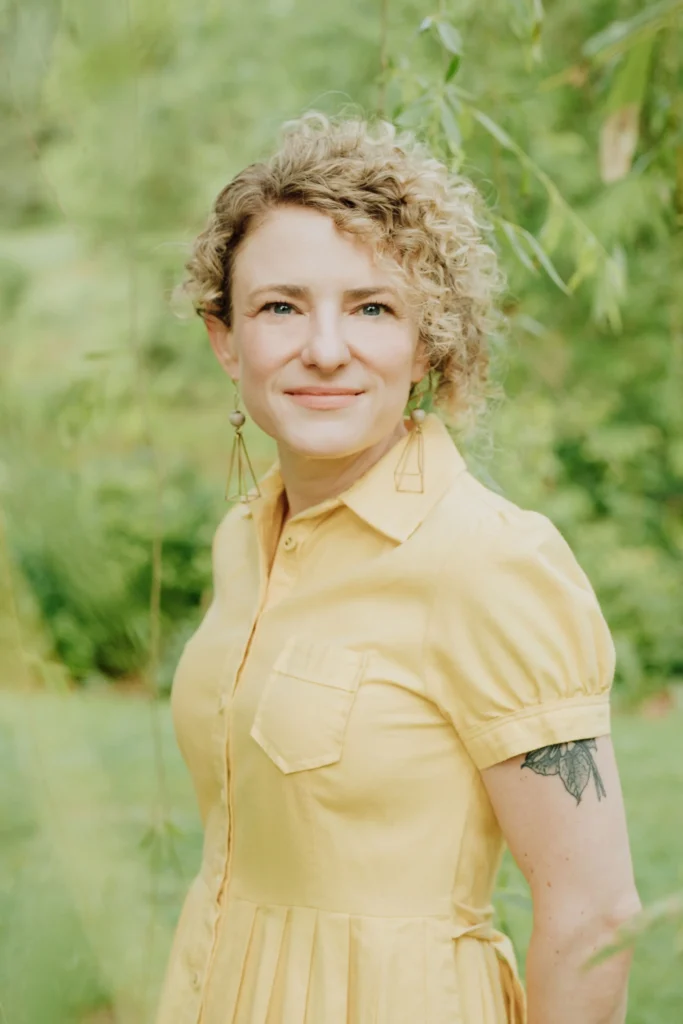
SOUND MEMORIES will also follow a research team at Northwestern Medicine’s Feinberg School of Medicine during each phase of their social singing study, which they hope will be the most comprehensive examination of the effects of memory choirs on people with dementia and their caregivers. The study, called The Bonakdarpour Lab: Laboratory for Interventions and Neuroimaging of Cognition (LINC), is part of the Mesulam Center for Cognitive Neurology and Alzheimer’s Disease. (Find more information about it here.)
In these 3 powerful, interconnected character-driven narratives, we explore the very real possibility that a non-medical intervention like this could reframe the way an individual lives with memory loss.
I am drawn to the connection between music and memory and all of the possibilities that are yet to be explored to improve the lives of those with memory loss.
Mercedes Kane
Who initially inspired you to grapple with dementia?
As the director of the film and someone who experienced the pain and lonely loss of my grandmother, Daisy Sowder, to Alzheimer’s, I feel deeply committed to advancements in the field of dementia care. Music is something that has connected me to generations of my family, many of whom were musicians and singers in their own right. I continue to stress the importance of music to my own elementary-aged children who each play the piano and participate in band. I am drawn to the connection between music and memory and all of the possibilities that are yet to be explored to improve the lives of those with memory loss. When I discovered the memory choirs, I wondered how a group like this may have changed, or even extended, the final years of my grandma’s life. I’ll never know what a memory choir could have done for my own beloved grandmother, but my hope is to share the science of social singing so that no one else has to wonder.
How has working on dementia-related art changed you?
I have forged relationships built on trust and intention with the film’s participants visiting choirs in Minnesota and Chicago. I have captured the early morning ritual of Grant and the magic of Vladimir’s leadership in the Centro choir. I speak regularly with Eyleen, Giving Voice’s executive director, and Shana, the choral director for Amazing Grace. We all believe in the power of this story and the unlimited potential social singing can have on dementia. In a population that is growing denser by the day, I feel strongly about sharing the light and hope that this movement can bring.
Where does your work stand today?
The film is starting production. Each participant and their family are eager to shine a light on what life looks like under the shadow of dementia, as well as the light that music shines into their lives. They want more people to understand the relief that social singing can bring and the way it can improve someone’s condition and quality of life.
Find more from Daisy May Films, or how to get involved with this work, on its website. Daisy May Films is a 501c3 nonprofit and accepts donations to support this work online.

